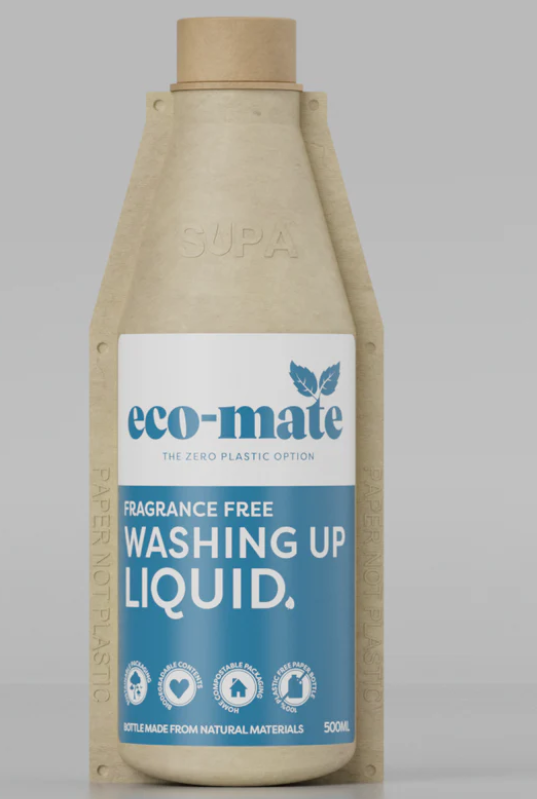Washing dishes: a daily chore that might seem mundane, but its impact on the environment shouldn't be underestimated. Traditional washing-up liquids often contain harsh chemicals, synthetic fragrances, and microplastics, posing potential harm to our health and ecosystems. Here's where eco washing-up liquids step in, offering a powerful clean while minimizing the ecological footprint. Let's delve into the world of these sustainable suds, exploring their benefits, ingredients, considerations, and popular brands.
Embracing the Green Alternative: Why Choose Eco Washing Up Liquid?
· Environmental Benefits: Biodegradable formulations minimize water pollution and protect aquatic life. Plant-based ingredients reduce reliance on harsh chemicals and petroleum derivatives. Sustainable packaging further adds to the eco-friendliness.
· Gentler on Skin: Many eco formulas avoid synthetic fragrances and harsh additives, making them kinder to sensitive skin and reducing the risk of irritation. This is especially beneficial for individuals with allergies or eczema.
· Safer for Your Home: Free from harmful chemicals and microplastics, eco washing-up liquids are safer for families with young children or pets. You can breathe easy knowing your cleaning routine isn't putting your loved ones at risk.
· Ethical Choices: Many eco brands prioritize ethical sourcing and responsible manufacturing practices, often being vegan-friendly and cruelty-free. This aligns with values of sustainability and compassion towards animals and the environment.
Understanding the Ingredients: What Makes Eco Washing Up Liquid Different?
The key lies in the ingredients:
· Plant-Based Surfactants: Derived from coconut, sugarcane, or other renewable sources, these replace harsh petrochemical-based surfactants, effectively cutting through grease while being biodegradable.
· Natural Oils and Extracts: Aloe vera, chamomile, and essential oils like lavender can provide cleaning power, gentle fragrance, and skin-soothing properties.
· Mineral-Based Ingredients: Sodium citrate and citric acid act as natural chelating agents, softening water and boosting cleaning performance.
· Sustainable Packaging: Recycled plastic bottles, paper bottles, or refillable pouches minimize plastic waste and promote a circular economy.
Beyond the Ingredients: Things to Consider When Choosing Eco Washing Up Liquid
· Cleaning Performance: While eco-friendly, the chosen product should effectively cut through grease and grime, leaving dishes clean and fresh. Read reviews and compare ingredients to find a formula that delivers.
· Concentration: Concentrated formulas require less product per wash, reducing packaging waste and saving money. Look for brands offering concentrated options.
· Cost: Eco washing-up liquids might be slightly more expensive than conventional ones, but consider the long-term environmental and health benefits and the value of supporting sustainable brands.
· Certification: Look for independent certifications like Ecocert, USDA Organic, or Leaping Bunny for verification of eco-friendly claims and ethical practices.
Popular Eco Washing Up Liquid Brands:
· Ecover: A pioneer in eco-friendly cleaning, offering powerful plant-based formulas in recycled plastic bottles.
· Bio-D: Another established brand focused on biodegradable and cruelty-free ingredients.
· Earth Friendly Products: Offers various eco-friendly household cleaning products, including washing-up liquids with essential oils.
· Dr. Bronner's: Their castile soap, diluted with water, can be used for dishes, offering a versatile and sustainable option.
· Green People: Focuses on gentle, plant-based formulas safe for sensitive skin and the environment.
Making the Switch: Tips for Embracing Eco Washing Up Liquid
· Start Small: Experiment with one eco brand or product at a time to see how you like it.
· Dilute Concentrated Formulas: Follow the recommended dilution instructions to avoid waste and ensure proper cleaning performance.
· Embrace Refillable Options: Look for brands offering refillable pouches or stores with bulk dispensing systems to minimize packaging waste.
· Explore DIY Options: For the adventurous, consider making your own washing-up liquid using castile soap, water, and essential oils.
Beyond the Suds: Extending Your Eco-Consciousness
Washing dishes with eco-friendly products is a great start, but consider adopting other sustainable practices:
· Use hot water sparingly: Most dishwashing is effective in warm water, saving energy.
· Air-dry dishes: Skip the energy-intensive drying cycle; let them air-dry on a rack.
· Compost food scraps: Instead of throwing food waste away, turn it into nutrient-rich compost for your garden.
· Minimize single-use items: Opt for reusable dishcloths and brushes instead of disposable sponges.
By making informed choices and adopting sustainable habits, we can transform the mundane task of washing dishes into an opportunity to care for our planet and ourselves. Choose eco washing-up liquid, explore further environmental practices.





Comments